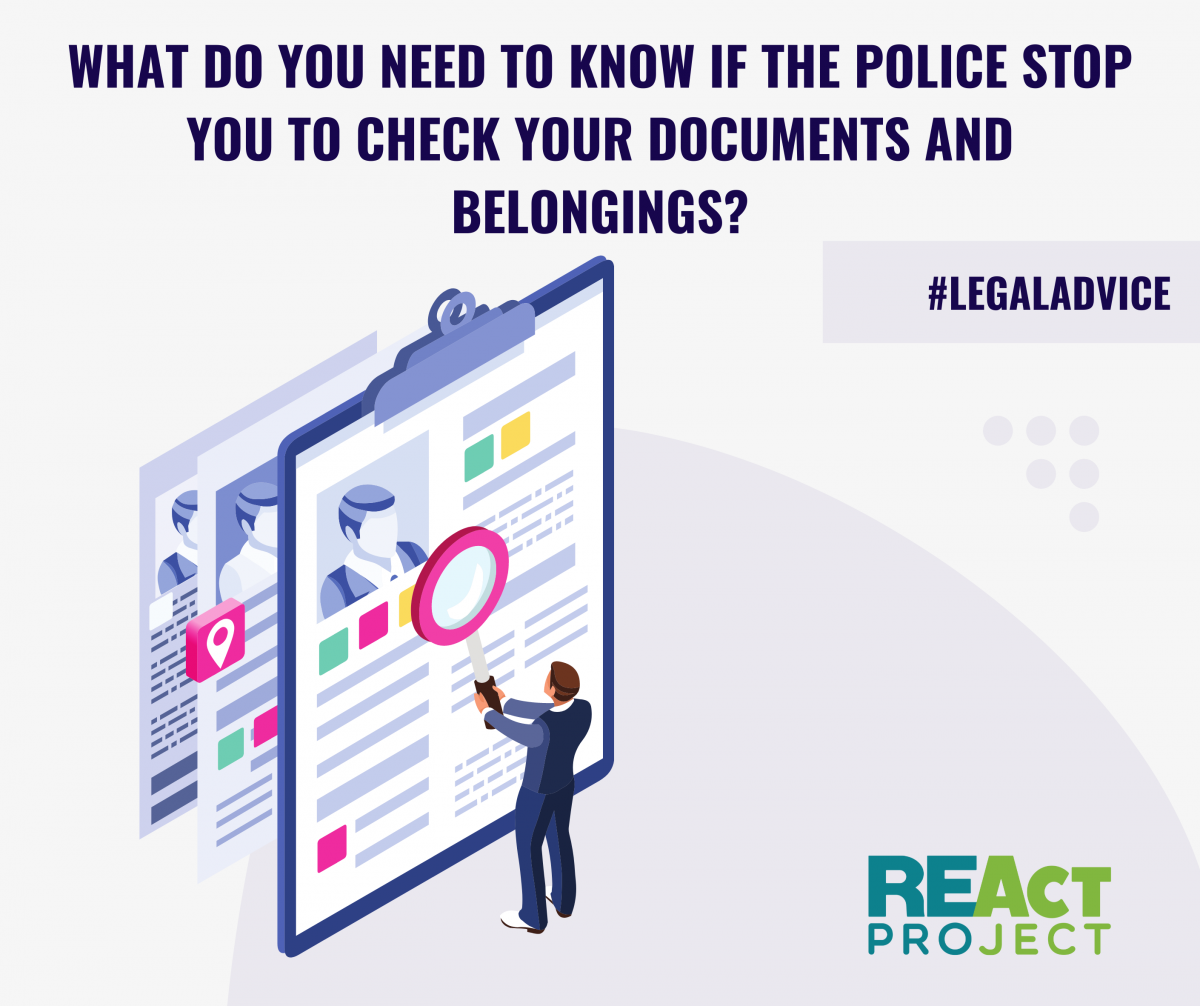The REAct project often registers violations of the rights of key populations by the police. Quite often this relates to unreasonable detention of OST program clients, especially if they have drugs for self-administration on them.
Most often police officers check personal ID documents or frisk the suspect.
Such acts of the police often cause resentment in the OST program participants, but, according to the Law of Ukraine “On the National Police”, the officers have the right to do it, especially when there are sufficient grounds to believe that the person carries drugs or other banned or restricted things or things requiring special authorization for storing, use or transportation.
Frisking is a visual examination of a person by the police officer; patting or sweeping over the person’s clothes with hands, special equipment, or a device; visual examination of the belongings. During frisking, you must personally show the police officer the content of your belongings. This means that the police officer cannot try to examine or search you under your outerwear and cannot reach into your pockets.
Before frisking or examination, the police officer must inform you about the reasons for the stop. According to the Law, frisking can be performed by a police officer of the same sex. In urgent cases, frisking can be performed by any officer with the use of special equipment or device.
Remember: any interaction with the police must begin with your request to show their badges. You should read them carefully, and, if possible, record the names and positions of the law enforcement officers, and the badge numbers (if any). You may need this information to identify the officers to appeal against their actions. The police officers must tell you this information.
To avoid conflicts with the police, OST program clients must always carry:
- A personal ID;
- Properly filled medication chart;
- A copy of the request to receive OST drugs for self-administration signed and sealed by the chief physician of the health facility.
The police officer does not have the right to seize any documents or belongings unless they are an instrument or an object in the offense. If any belongings are seized by the police officer (including the OST drugs), it must be reported in the protocol in presence of two official witnesses. Police officers cannot demand you to follow them to the police department without specifying the reasons and referring to legal justification.
In case of violation of the rights of OST program clients by police officers, you can:
- Call 102 to report about police wrongdoing;
- Call police hotline at 0-800-50-02-02;
- Call OST hotline;
- Report the offence by the police officer to the Main Police Department of the oblast.
Criminal acts by police officers must be reported to the State Investigation Bureau.


